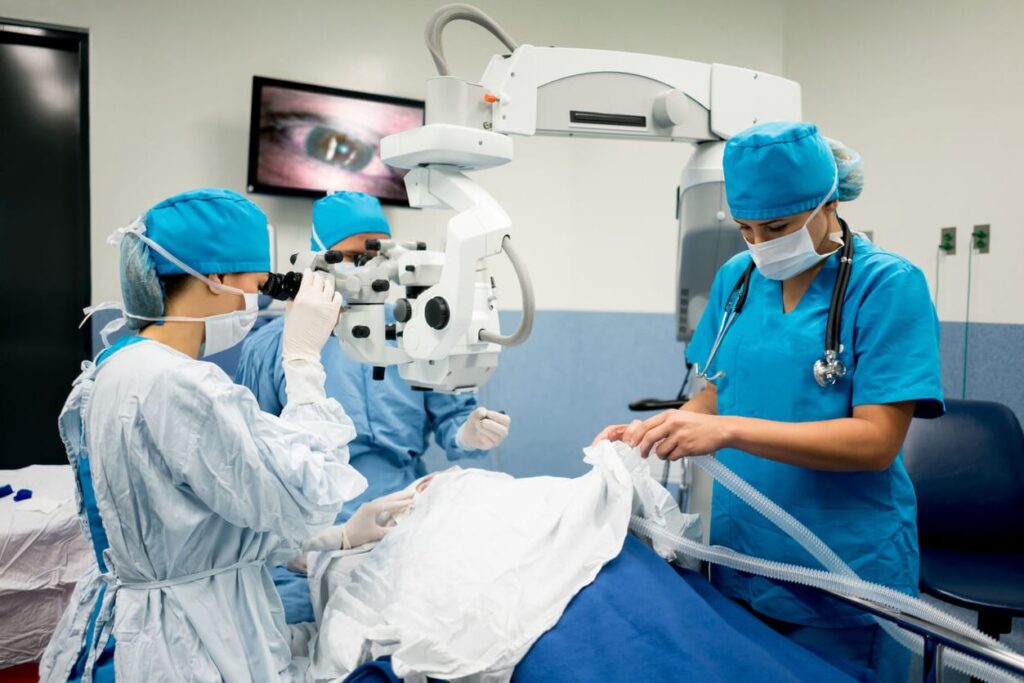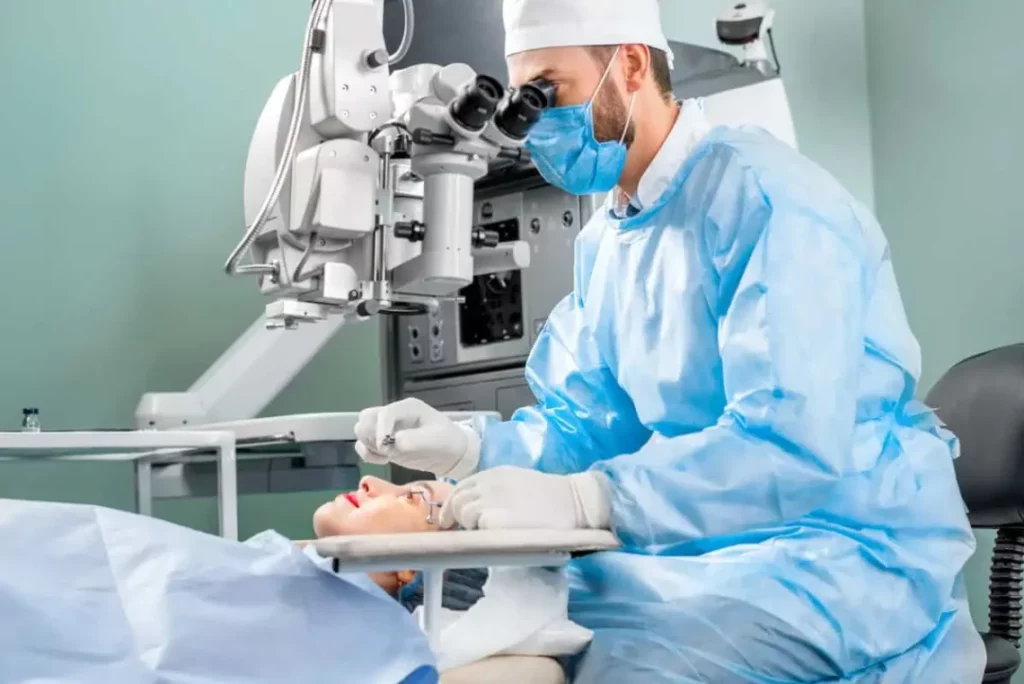Cataract surgery is a common procedure that can significantly enhance an individual’s quality of life by restoring clear vision. For residents of Sydney, understanding the ins and outs of this surgery, from preparation to recovery, is essential for a successful outcome. This article will provide valuable insights into cataract surgery, guiding you through the process and what to expect.
Understanding Cataract Surgery
Cataract surgery is a medical procedure designed to remove the lens of the eye that has become cloudy due to cataracts. This condition is prevalent among older adults, and as cataracts progress, they can lead to blurred vision, glare, and difficulty seeing at night. The formation of cataracts is often a natural part of aging, but other factors such as diabetes, prolonged exposure to sunlight, and certain medications can also contribute to their development. Understanding the nature of cataract surgery sydney can empower patients to make informed decisions about their eye health.
What is Cataract Surgery?
During cataract surgery, the cloudy lens is replaced with an artificial lens called an intraocular lens (IOL). This surgery is typically performed on an outpatient basis, meaning patients can go home the same day. With advancements in technology, this procedure has become safer and more effective over the years. Surgeons often utilize techniques such as phacoemulsification, where ultrasound waves break up the cloudy lens, allowing for a minimally invasive approach. Patients may also have options for different types of IOLs, including multifocal or toric lenses, which can further enhance vision correction and reduce dependency on glasses post-surgery.
The Importance of Cataract Surgery
Cataracts can severely impair everyday activities, such as reading, driving, and engaging in hobbies. By addressing this issue through surgery, individuals can improve their vision significantly and regain their independence. Moreover, timely treatment can prevent complications associated with prolonged cataracts, including increased falls and accidents. Beyond the immediate benefits of improved vision, studies have shown that successful cataract surgery can enhance overall quality of life, leading to increased social interactions and a greater sense of well-being. Patients often report feeling more confident in their daily activities, which can have a positive impact on their mental health and emotional state.
Furthermore, the recovery process after cataract surgery is generally swift, with many patients noticing improvements in their vision within days. Post-operative care typically involves follow-up visits to ensure the eye is healing properly and to monitor for any potential complications. Patients are often advised to avoid strenuous activities and protect their eyes from bright lights during the initial recovery phase. With proper care and attention, most individuals can expect to enjoy clearer vision and a return to their normal routines in no time.

Preparing for Cataract Surgery in Sydney
Preparation is a critical component of the cataract surgery process. Ensuring that you are adequately prepared can lead to better outcomes and a smoother surgery experience. The following steps typically encompass the preparatory phase.
Initial Consultation and Eye Examination
Your journey to improved vision begins with an initial consultation. This session is vital for assessing your overall eye health and determining the extent of your cataracts. During this appointment, your surgeon will perform a comprehensive eye examination, which may include various tests to measure your visual acuity and check the condition of your eyes.
It is crucial to discuss any medications you are currently taking and any other medical conditions, as these factors can influence the surgery. Your surgeon will explain the details of the procedure, including the risks and benefits, and you will be given an opportunity to ask any questions you might have. This is also a good time to discuss what to expect during the recovery period, including any potential limitations on activities such as driving or heavy lifting. Read more about how eye examinations are conducted at https://meded.ucsd.edu/clinicalmed/eyes.html
Choosing the Right Surgeon
Choosing a skilled and experienced surgeon is one of the most important decisions you will make. Research potential candidates by looking into their qualifications, experience, and patient reviews. Consider scheduling consultations with multiple surgeons to assess their approach and to determine which one you feel most comfortable with.
Check credentials and board certifications.
Read reviews and testimonials from previous patients.
Ask about the surgeon’s experience with cataract surgeries.
Inquire about the types of intraocular lenses they recommend.
Additionally, it may be beneficial to seek recommendations from your primary care physician or optometrist, as they can provide insights based on their professional network and your specific eye health needs. Understanding the surgeon’s approach to patient care and their availability for follow-up appointments can also play a significant role in your decision-making process. Remember, a good rapport with your surgeon can help ease any anxiety you may feel leading up to the surgery.
Furthermore, consider the facility where the surgery will take place. Ensure that it is accredited and equipped with the latest technology, as this can significantly influence the quality of care you receive. Some centers may also offer additional resources, such as pre-operative education sessions or support groups, which can provide valuable information and emotional support as you prepare for your procedure.
The Cataract Surgery Procedure
Once the preparation phase is complete, you will be scheduled for your cataract surgery. It’s essential to understand what will happen during the procedure to reduce anxiety and set realistic expectations.
Step-by-Step Process of Cataract Surgery
The procedure generally lasts less than an hour and is performed under local anesthesia. Here’s a brief overview of what happens during surgery:
Preparation: You will be given eye drops to dilate your pupils and an anesthetic to numb the area.
Incision: The surgeon will make a tiny incision in the cornea.
Lens Removal: Using ultrasound technology, the surgeon will break up the cloudy lens into smaller pieces and gently remove them.
Intraocular Lens Insertion: The new synthetic lens will then be inserted into the capsule that held the original lens.
Finalization: The incision is so small that stitches are usually not required. The surgery typically concludes within 15 to 30 minutes.
Modern Techniques in Cataract Surgery
In recent years, cataract surgery has advanced significantly, with modern techniques enhancing safety and effectiveness. Options such as phacoemulsification, femtosecond laser technology, and premium intraocular lenses offer tailored solutions for patients based on their specific needs.
These innovations have reduced recovery time, minimized discomfort, and improved overall outcomes, allowing patients to return to normal activities in a shorter time frame.
Furthermore, the introduction of advanced imaging systems helps surgeons map the eye’s anatomy with precision, ensuring that the new lens is positioned optimally. This level of detail not only enhances the accuracy of the procedure but also allows for a more personalized approach to each patient’s unique vision requirements. As a result, many patients report improved visual acuity and a broader range of vision post-surgery, which can significantly enhance their quality of life.
Additionally, the use of multifocal and accommodating intraocular lenses has revolutionized the way patients experience vision correction after cataract surgery. Unlike traditional monofocal lenses, these advanced options can provide clear vision at multiple distances, reducing the dependence on glasses for reading or other activities. This has made cataract surgery an even more appealing option for individuals seeking to regain their independence and enjoy everyday tasks without the hindrance of corrective eyewear.
What to Expect After Cataract Surgery
The post-operative phase is equally important to the surgery itself. Understanding what to expect will help you navigate your recovery effectively.
Post-Surgery Care and Recovery
After the surgery, you will spend a brief period in the recovery room before going home. It’s essential to have someone drive you home, as your vision may be blurry immediately following the procedure.
Post-surgery care involves using prescribed eye drops to prevent infection and reduce inflammation. It’s crucial to follow your surgeon’s instructions diligently to achieve the best results. Most patients notice an improvement in their vision within a couple of days, but full recovery can take weeks. During this time, you may also be advised to wear an eye shield while sleeping to protect your eye and prevent any accidental rubbing or pressure that could hinder healing. Additionally, avoid strenuous activities and heavy lifting for at least a week to ensure a smooth recovery process.
It’s also beneficial to keep track of your symptoms and any changes in your vision. If you notice any sudden increase in pain, redness, or a significant decrease in vision, it’s important to contact your healthcare provider immediately. Regular follow-up appointments will be scheduled to monitor your healing and ensure that your eye is recovering as expected, allowing your surgeon to address any concerns that may arise. To learn more about how to take care of a patient after surgery click here.
Potential Risks and Complications
While cataract surgery is generally safe, it is essential to be aware of potential risks and complications. Some of these can include:
Infection
Inflammation
Bleeding
Retinal detachment
Vision problems, such as glare or halos
Discuss these risks with your surgeon during the consultation phase. Understanding them will help you make an informed decision about your surgery and post-operative care. It’s also worth noting that while complications are rare, they can occur. For instance, some patients may develop posterior capsule opacification (PCO), a condition where the thin membrane behind the lens becomes cloudy, affecting vision. This can often be treated with a quick outpatient procedure known as YAG laser capsulotomy, which can restore clarity to your vision.
Moreover, it’s essential to maintain open communication with your healthcare team throughout your recovery. They can provide guidance on lifestyle adjustments that may enhance your healing process, such as dietary recommendations rich in antioxidants, which may support eye health. Engaging in gentle activities like walking can also promote circulation and aid in your overall recovery, but always consult your surgeon before starting any new exercise routine. Remember, your eyes are healing, and taking proactive steps can contribute significantly to a successful outcome.

The Impact of Cataract Surgery on Your Vision
One of the most compelling reasons for undergoing cataract surgery is the improvement in vision it can provide. Most patients experience significant clarity post-surgery.
Immediate and Long-Term Vision Improvement
Many patients report immediate improvements in vision shortly after the procedure; colors appear brighter, and objects become clearer. Over the months that follow, vision continues to stabilize and improve as the eye heals.
For most people, the overall improvement in vision allows them to engage more fully in their daily activities—be it reading, driving, or enjoying the beauty of life’s finer details.
Maintaining Eye Health Post-Surgery
Once you’ve undergone cataract surgery, maintaining your eye health is crucial. Regular follow-ups with your surgeon are essential to ensure that your eyes remain healthy and that your vision continues to meet your expectations.
Additionally, adopting healthy eye habits can further support good vision:
Regular eye check-ups
Wearing sunglasses to protect against UV light
Eating a balanced diet rich in vitamins
Stopping smoking if applicable
By following these guidelines, you can enjoy the benefits of your cataract surgery for years to come.
In conclusion, cataract surgery in Sydney can significantly enhance your quality of life by improving your vision. By understanding the process, preparing adequately, and maintaining eye health post-surgery, you can ensure a successful outcome and enjoy the world in vibrant clarity.
Related : Is Cataract Eye Surgery Right for You? Signs It’s Time to Consider Treatment
